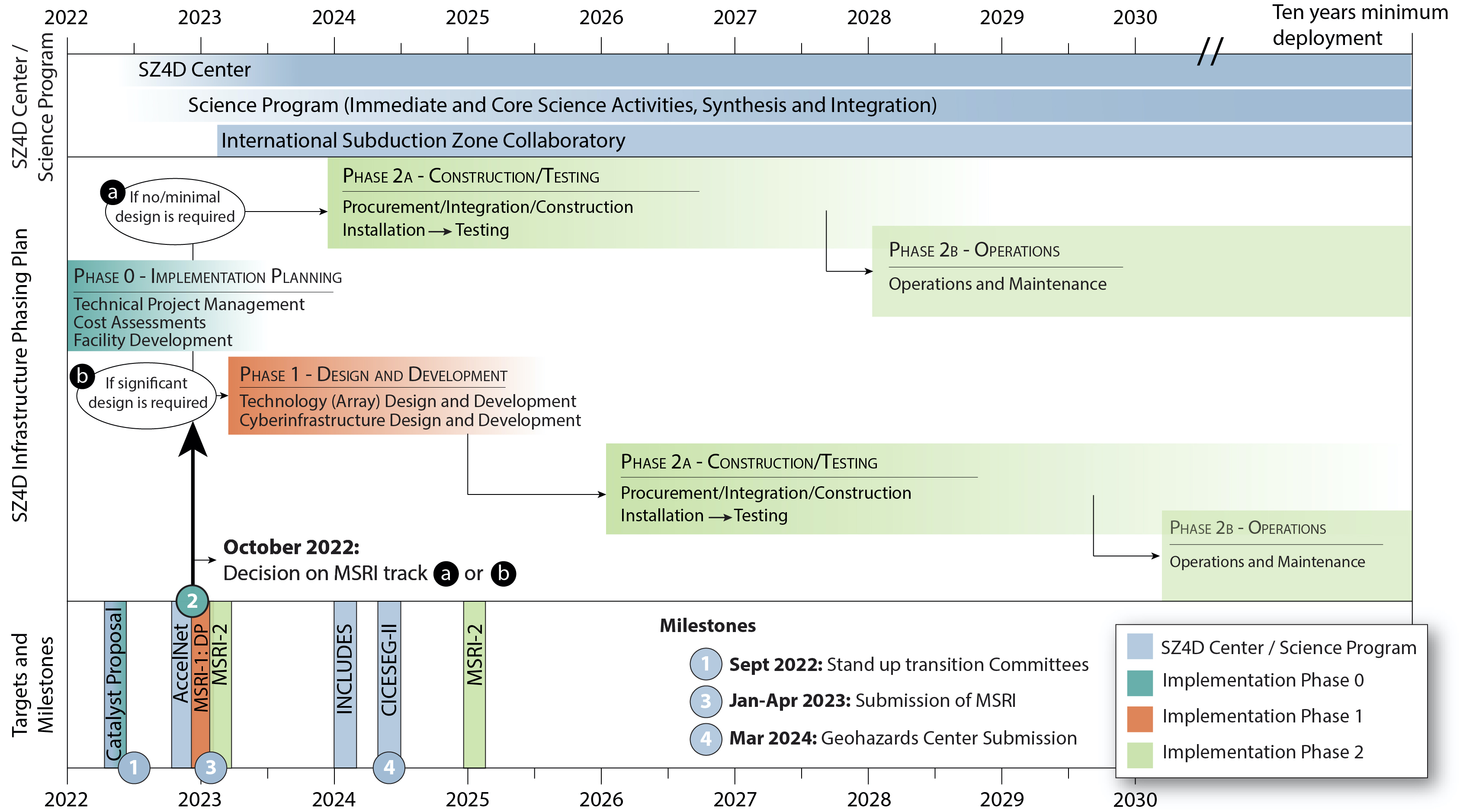IRIS Receives NSF Award to Support Planning of Subduction Zone Observatory
The National Science Foundation (NSF) awarded nearly $500,000 to IRIS to conduct activities focused on Subduction Zone in Four Dimensions (SZ4D). SZ4D is an initiative in the research community to study subduction zones – the places where tectonic plates converge and collide – through both space and time, with a focus on the fundamental processes underlying geologic hazards such as great earthquakes, tsunamis, landslides, and volcanic eruptions. UNAVCO is a subawardee on this award to IRIS. Additional funds were awarded by NSF to the University of California, Santa Cruz and Georgia Tech.
The collaborative effort enabled by this Catalyzing SZ4D award will:
- establish a center for organizing SZ4D and building equity and capacity using a Collective Impact model;
- oversee technical project management needs including instrumentation cost estimates, time phasing, and project planning;
- organize workshops in preparation for geological, modeling, and laboratory facilities.
IRIS and UNAVCO will provide technical expertise for project management and lead the organization of a large community workshop in Fall 2022. IRIS and UNAVCO staff will work closely with the SZ4D Executive Committee, Steering Committee, and the four SZ4D Working Groups: Landscapes and Seascapes, Faulting and Earthquake Cycles, Magmatic Drivers of Eruption, and Building Equity and Capacity in Geoscience. Some IRIS and UNAVCO staff may also serve on these and other SZ4D committees.
In 2016, a community workshop was convened to explore the suite of activities needed to develop a multidisciplinary Subduction Zone Observatory program. The workshop report, “The SZ4D Initiative,” identified three key components: 1) an interdisciplinary science program, 2) a modeling collaboratory, and 3) a community infrastructure program, which were developed through a NSF-funded Research Coordination Network from 2018 to 2021 to establish a unified, concrete community plan for a decade-long coordinated research effort. The newly funded collaborative activities will directly affect high-priority elements of the draft implementation plan and have identifiable, tractable development needs that should be addressed prior to launch of a full SZ4D program.
For more information including upcoming events, please go to the SZ4D website and sign up for the SZ4D mailing list. A page is also available with information on this award, with previous work archived on the SZO/SZ4D webpage.

Timeline and milestones for SZ4D including the current Catalyst proposal and future implementation.


